


The focus of our unit is the research in modern nuclear magnetic resonance (NMR). We are developing and applying modern experimental as well as computational magnetic resonance methods to create new tools to characterize physical properties of molecules, materials and nanosystems and to reliably interpret the acquired data with high accuracy using quantum-chemical calculations.
We also provide teaching in many courses in the physics curriculum, and supervise B.Sc. and M.Sc. theses, which are based on our research. More information about offered B.Sc. and M.Sc. projects (in Finnish).
Finnish version of our group webpages can be found here.
Our unit invites applications for a two-year postdoctoral position at Zhivonitko Research Group. The position is related to a Research Council of Finland project focused on NMR spin hyperpolarization using parahydrogen and metal-free catalysis.
Nuclear spin hyperpolarization techniques provide a powerful means for enhancing NMR sensitivity. Parahydrogen-induced polarization (PHIP) is a dynamically developed hyperpolarization method that offers significant promise for the current and future applications of NMR. In this position, the successful candidate will develop and apply novel metal-free catalysts for PHIP. In the approach, one combines design of metal-free catalysts for parahydrogen activation based on frustrated Lewis pairs chemistry and singlet biradicals, theoretical description of these systems using quantum chemistry methods, modeling of underlining spin dynamics effects, and application of these catalysts in various areas of NMR.
For this position, we require a doctoral degree in physics, chemistry, catalysis, materials science, or a related field. The successful candidate has experience in experimental NMR spectroscopy, general chemistry, catalysis, as well as scientific computing. Knowledge of NMR hyperpolarization, synthetic chemistry, quantum chemistry, spin dynamics, or reaction kinetics is considered a merit.
Further information about the position is available at:
https://oulunyliopisto.varbi.com/en/what:job/jobID:897892/
Applications (deadline is March 31, 2026) can only be made through the link given above.
Our group is offering 6 summer jobs for students at the University of Oulu this year
Application deadline: February 15, 2026.
For more information, see the application forms:
- Summer jobs 1–6
PhD student Tiia Jacklin's paper "Quantum-mechanical treatment of thermal effects on the structure and 13C NMR shielding of buckminsterfullerene C60" has been selected by the editors of Physical Chemistry Chemical Physics (PCCP) among "2025 HOT PCCP articles" and featured on the front cover of Issue 28.
The paper is available at 10.1039/D5CP01484K 
Congratulations to Tiia on this achievement.

Ksenonatomi toimii kuin vakoilija, jonka NMR-signaalissa erottuvat ympäristön pienimmätkin muutokset. Oulun yliopiston NMR-tutkimusyksikössä on kehitetty laskennallisteoreettisia työkaluja, jotka avaavat uusia mahdollisuuksia käyttää ksenonkaasua biosensorina.
Read the full press release.
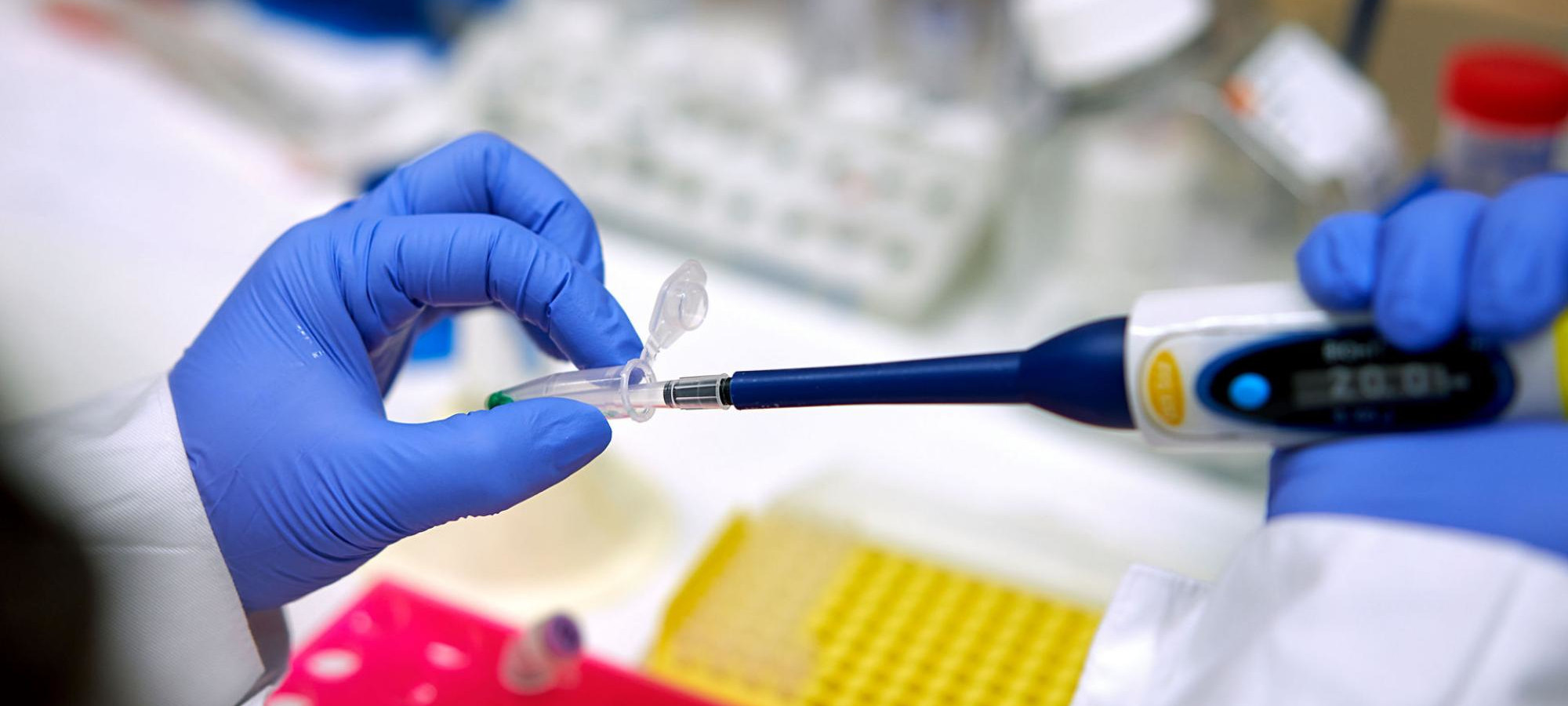
Congratulations to Ville-Veikko Telkki on being granted Academy Project Funding from the Research Council of Finland, totaling 857 000 € for the period 1.9.2025–31.8.2029.
The funded project is titled: Ultrafast Laplace NMR Methods for Sustainability
Hyperpolarized Ultrafast Laplace NMR (UF-LNMR) increases simultaneously both the time efficiency and sensitivity of multidimensional nuclear magnetic resonance (NMR) relaxation and diffusion experiments by several orders of magnitude. The method enables monitoring fast molecular processes in real time and makes much lower concentrations detectable than previously. This project significantly expands the UF-LNMR toolbox and harnesses the high efficiency and sensitivity of hyperpolarized UF-LNMR to research supporting sustainable development. The method is used to better understand the role of aerosols in climate change, to develop biosensors for monitoring molecular and metabolic processes in real time, as well as to develop and characterize novel sustainable materials, such as CO2-capturing cements, lignocellulosic biomaterials and battery materials.
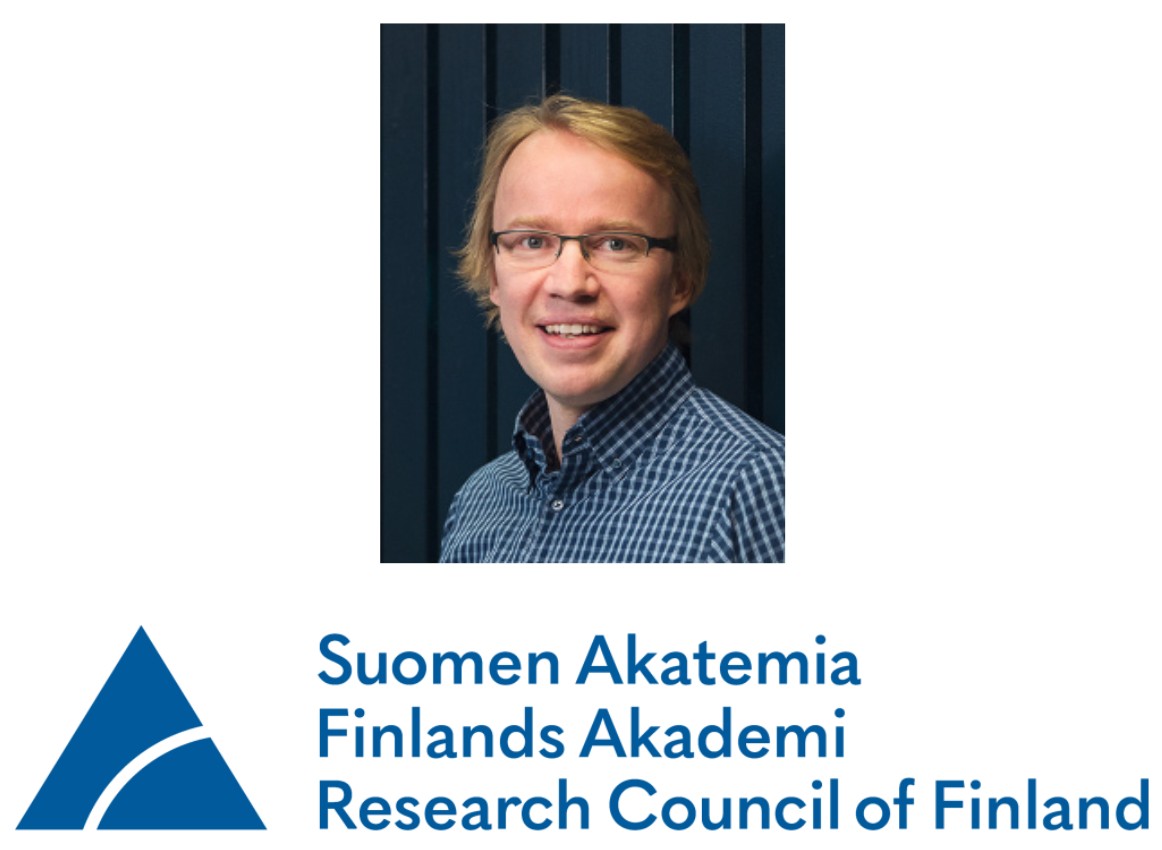
We are delighted to share the wonderful news that Vladimir Zhivonitko has been promoted to Professor at the University of Oulu.
This achievement reflects his outstanding contributions to research, teaching, and service within the field of magnetic resonance and materials science.
On behalf of the NMR Research Unit, we warmly congratulate Professor Vladimir Zhivonitko on this significant milestone in his academic career.
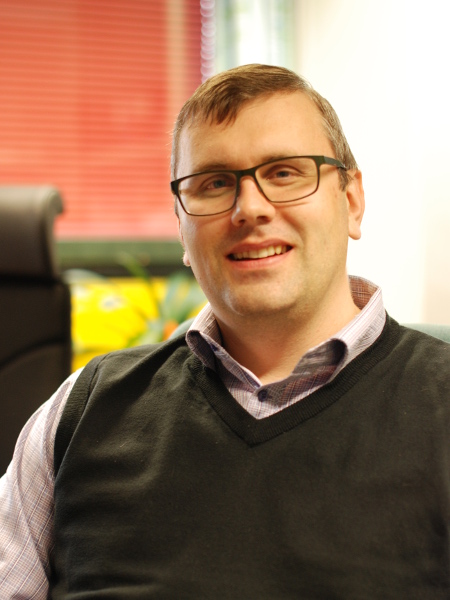
In Akseli Mansikkamäki’s research group at the University of Oulu develops molecules that could be used in future technologies. In the future the materials constructed from these kinds of molecules can be used to replace critical raw materials.
In a recent study Mansikkamäki and doctoral researcher Anand Chekkottu Parambil explored how magnetic molecules could be constructed from the so-called main-group heavy metals. These metals include elements such as tin, lead and bismuth. They are available in large quantities but as metals they are not magnetic and they do not have many uses, for example, in microelectronics. But as parts of molecules they can be used to construct magnetic materials for future components.
“In other words, we try to make ordinary chemical elements do things we never thought they could do”, Mansikkamäki explains.
Read the full press release.
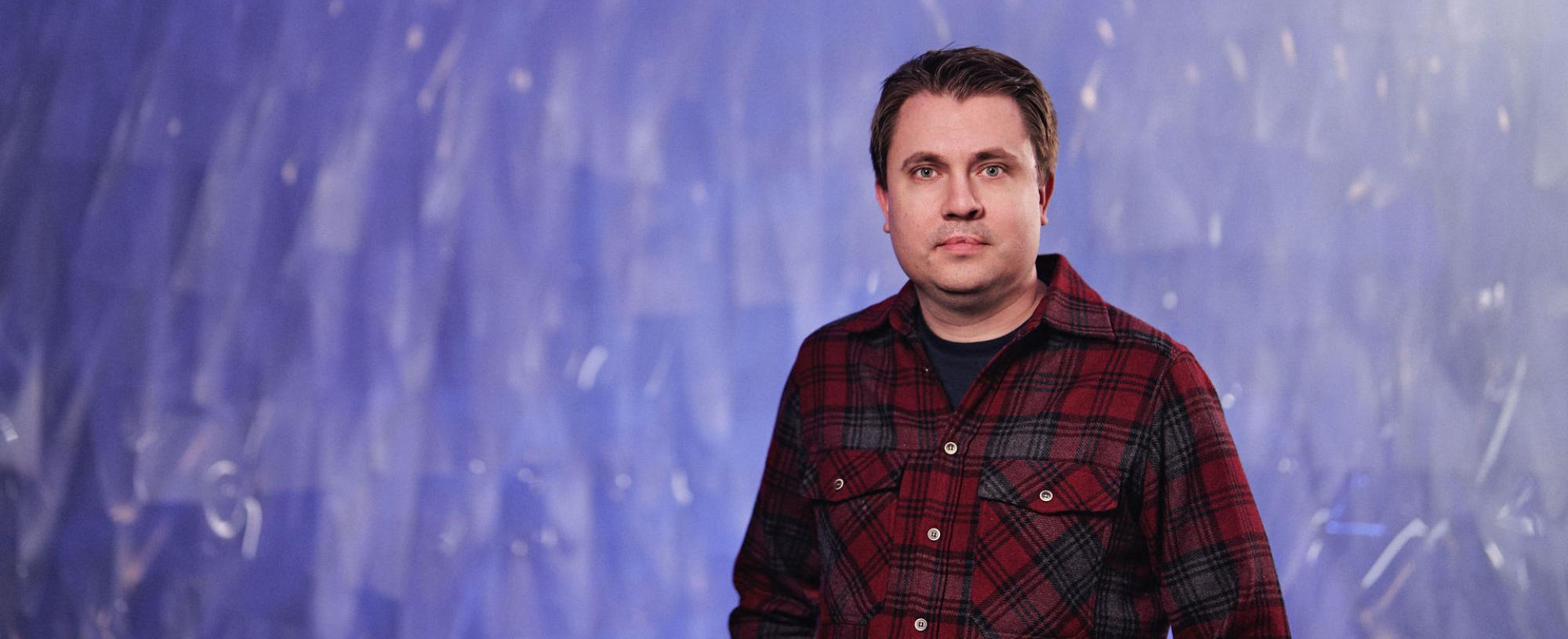
We welcome everybody to join us to EUROMAR 2025 in Oulu, July 6th-10th. The registration is open and abstract submission is possible until April 14th (oral) or May 15th (poster). For more information click here.
Our group is offering 6 summer jobs for students at the University of Oulu this year
Application deadline: February 15, 2025.
For more information, see the application forms:
- Summer job 1
- Summer jobs 2–6
In a new study, rare 300-century wooden structures from the Roman Empire were investigated in a wide range of ways using NMR methods. These methods, widely known for their use in hospital MRI scans to produce detailed images of the human body, have proven equally valuable in unraveling the secrets of archaeological treasures. Promising applications are rapidly expanding into a wide range of fields.
- Phys.org (In English)
- Kemia-media (In Finnish)
- Tekniikan Maailma (In Finnish, Paywall)

The postdoctoral position is a part of the Research Council of Finland research project ”Spin hyperpolarisation processes by multiscale simulations” led by Professor Juha Vaara. The project develops and applies efficient multiscale simulation techniques to simulate spin hyperpolarisation, a set of methodologies by which the sensitivity of modern nuclear magnetic resonance (NMR) spectroscopy can be enhanced by several orders of magnitude. The multiscale models involve molecular dynamics simulations to gain detailed atomic trajectories of the investigated molecular and materials systems, quantum-chemical calculations of the instantaneous atomic configurations to create a time series of spin Hamiltonians for the spins of the NMR nuclei and unpaired electrons, and finally spin dynamics simulations to propagate in time the density matrix of the combined spin system. The primary magnetic resonance observables such as spectra and magnetisation dynamics, e.g., relaxation or polarisation transfer, can then be extracted from the time-dependent density matrix, thus realising computational spectroscopy experiments on the spins and enabling direct comparison with experiments. Application deadline: August 31, 2024. For more information see https://oulunyliopisto.varbi.com/en/what:job/jobID:740484/.
Congratulations to our researchers Juha Vaara, Akseli Mansikkamäki, and Vladimir Zhivonitko for receiving funding from Research Council of Finland.
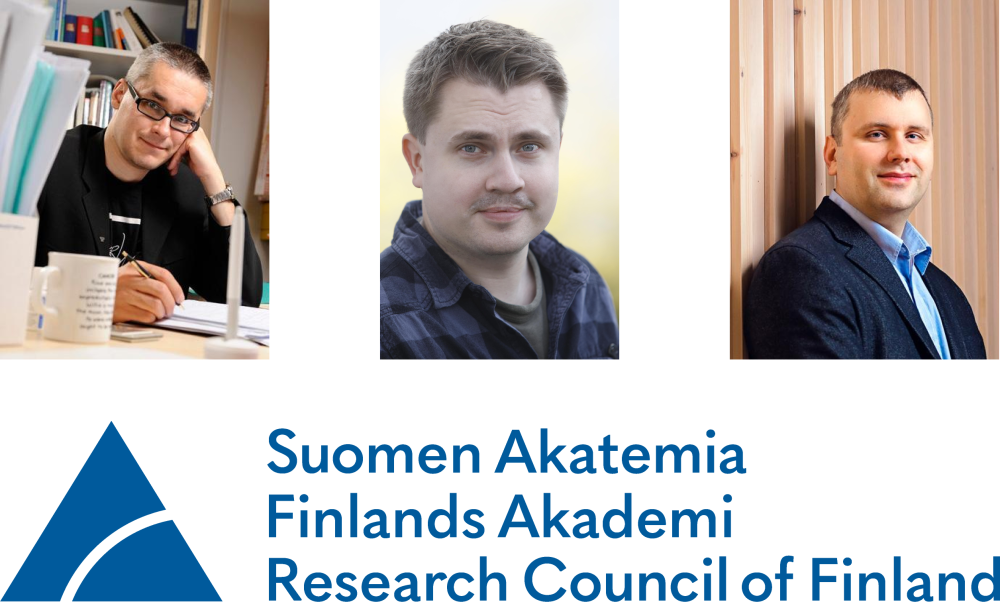
Haluatko päästä osaksi huippututkimusta ja huippumukavaa tutkimusryhmää? Hae kesätöihin NMR-tutkimusyksikköön! Tarjolla on paikkoja joka lähtöön, kokeellisesta menetelmänkehitystyöstä laskennallisteoreettiseen tutkimukseen, ja sovelluksia bio- ja akkumateriaaleista syöpäsolujen aineenvaihduntaan ja ilmakehän aerosoleihin. Kiillota CV ja opintorekisteriote ja lähetä hakemus eetteriin 11.2. mennessä!
Hakulinkki
Alla on lisää linkkejä, joista löytyy tietoa NMR-tutkimusyksikön toiminnasta. Tärkeimmät tiedot on kerätty tämän viestin liitteenä olevaan esittelykuvaan. Tänne saa myös tulla rohkeasti kyselemään ja tutustumaan!
Yksikön kotisivut
Kesätyöntekijöiden fiiliksiä kesältä 2023
Esittelyvideo
The project aims to develop efficient approaches to model NMR parameters in large molecular systems at real physical conditions. This is achieved by combining state-of-the-art quantum chemical (QC) methods at relativistic level for heavy-element containing systems with atomistic molecular dynamics (MD) simulations utilizing modern semi-empirical and machine learning (ML) approaches. The work is carried out in close collaboration with local and international experimental NMR researchers, where modeling is essential part providing predictions and microscopic interpretations of experimental observations. As a post-doctoral researcher, you will focus on developing QM/MD/ML-methods for large length- and time-scale simulations in new porous materials. The developed approaches will have great impact on materials NMR studies.
Application deadline: October 15, 2023.
For more information, see the application form.
Perttu Lantto has obtained financial support from Academy of Finland for a project about realistic modelling of NMR parameters of porous materials. Congratulations!
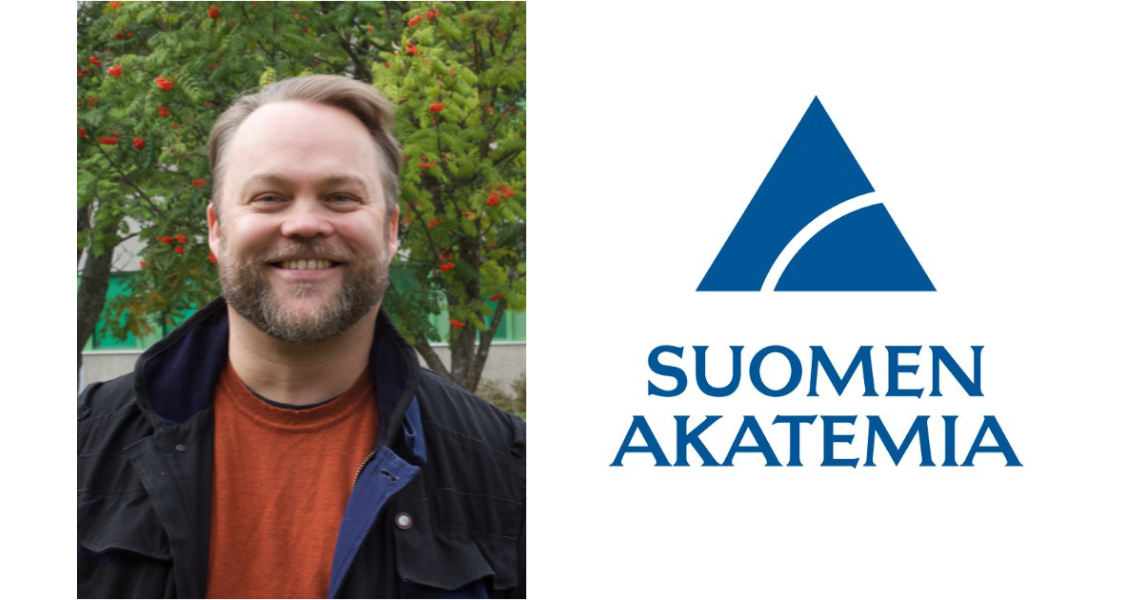
Otto Mankinen has received funding for Academy Research Fellow position from the Academy of Finland for Ultrafast Laplace NMR for biomaterials and energy solutions. Congratulations!
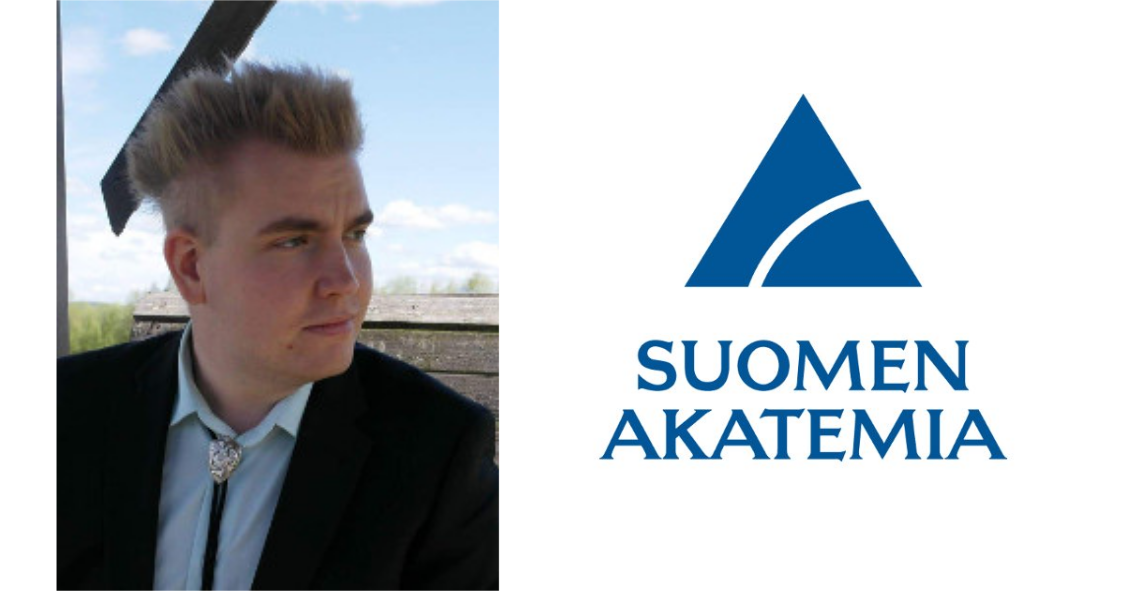
On May 11-12 our group will take turn in organizing the Finnish Computational Chemistry Days (CCD2023) here in Oulu. The registration and abstract submission is now open until April 14th. For more information click here.
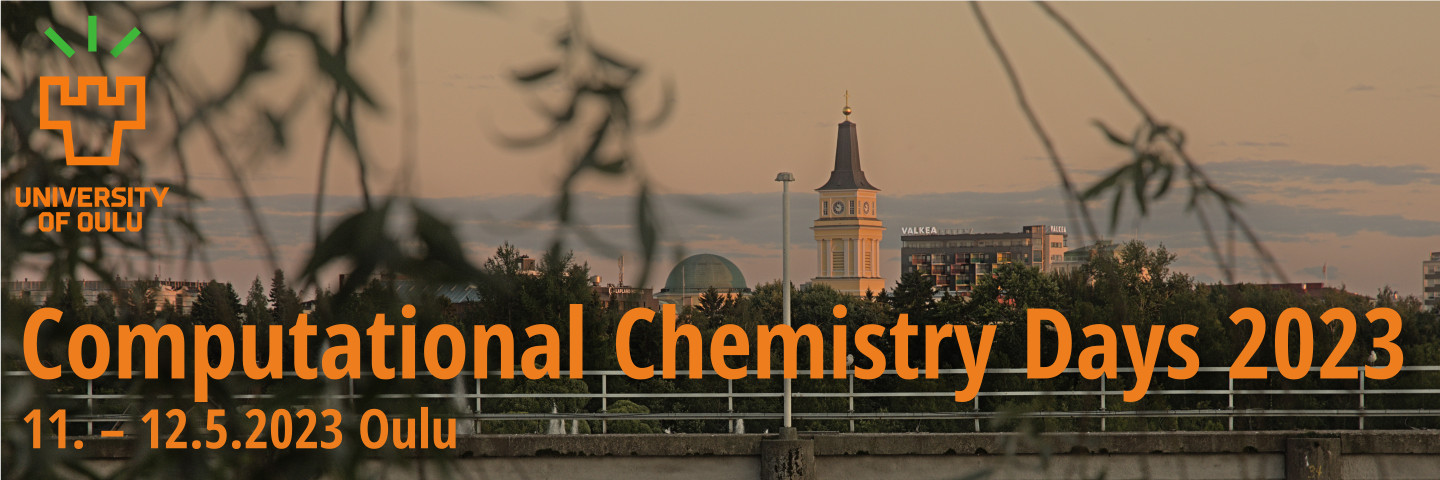
Last year we organized a short survey about the experiences of our summer workers at our unit. You can find their answers here (in Finnish only).
We are also hiring for this summer! Some of the topics were are studying can be found in this link or click the image. Come and ask if you are interested and apply for the position here by 5th February.
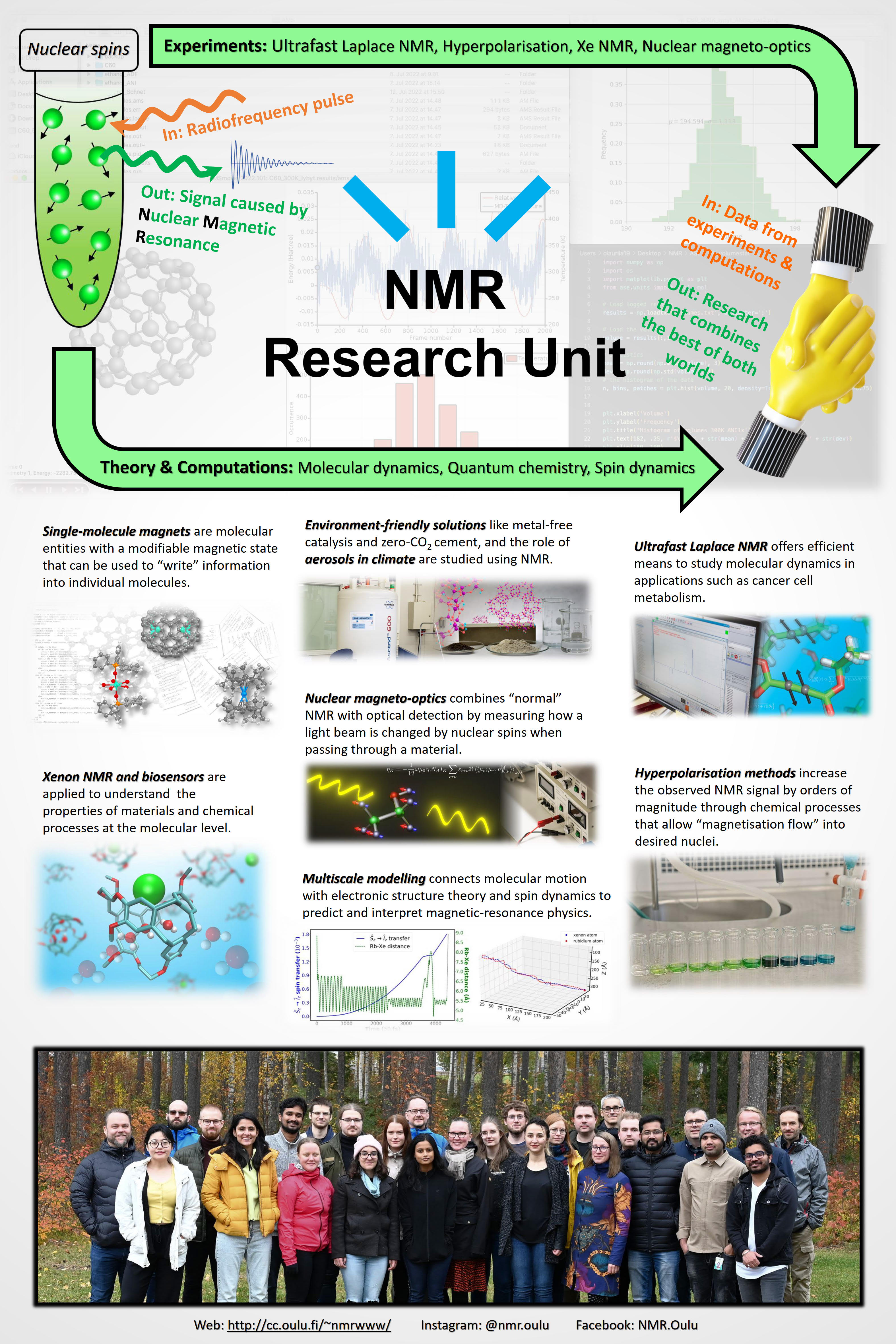
Our doctoral researcher Perttu Hilla has been awarded by Section for Computational Chemistry of the Finnish Chemical Societies for his thesis ”Molecular Dynamics of Xenon in Cryptophane-A”. Congratulations!
Perttu will give a seminar about his thesis on Thursday January 26th. You can find more information about how to follow the seminar online on the webpages of the Finnish Chemical Societies.
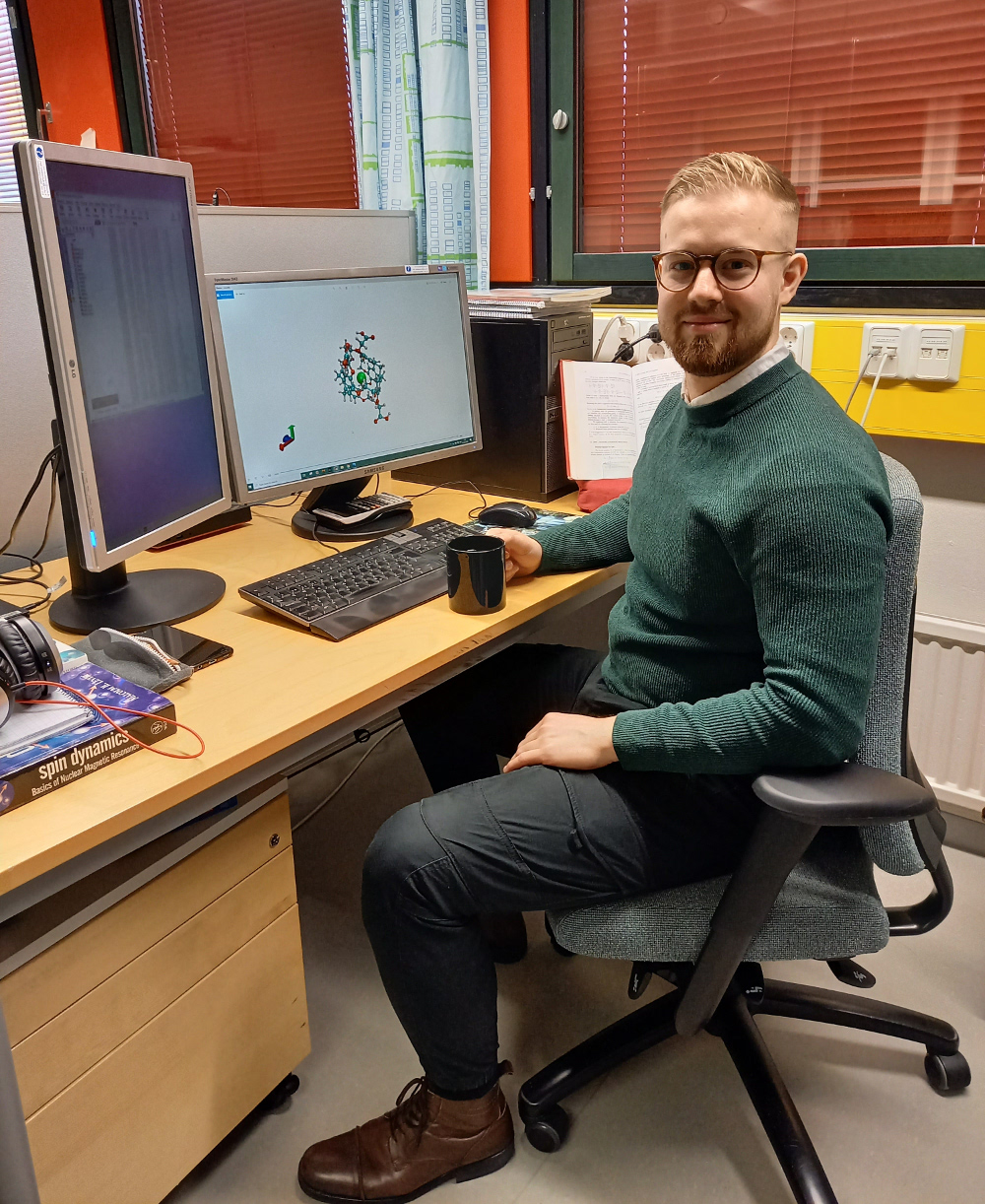
Our researcher Anu Kantola has received funding from Academy of Finland for a project investigating optical detection of NMR. Congratulations!
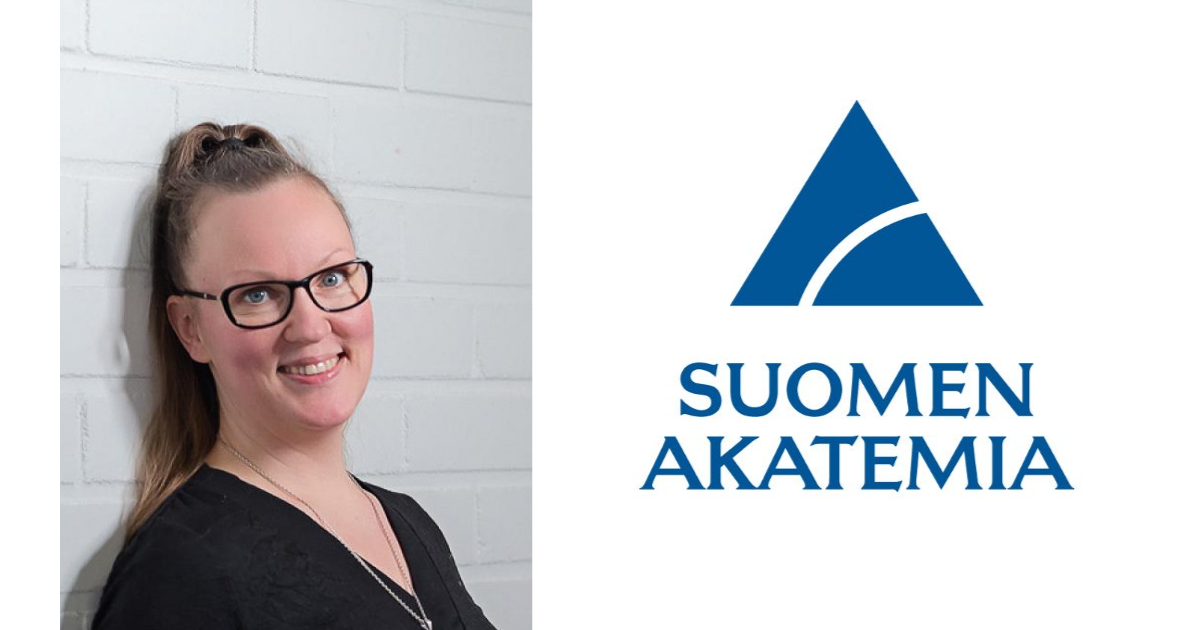
Our article Hyper-CEST NMR of metal organic polyhedral cages reveals hidden diastereomers with diverse guest exchange kinetics that was recently published in Nature Communications has been picked for Editors’ Highlights in section Inorganic and physical chemistry.
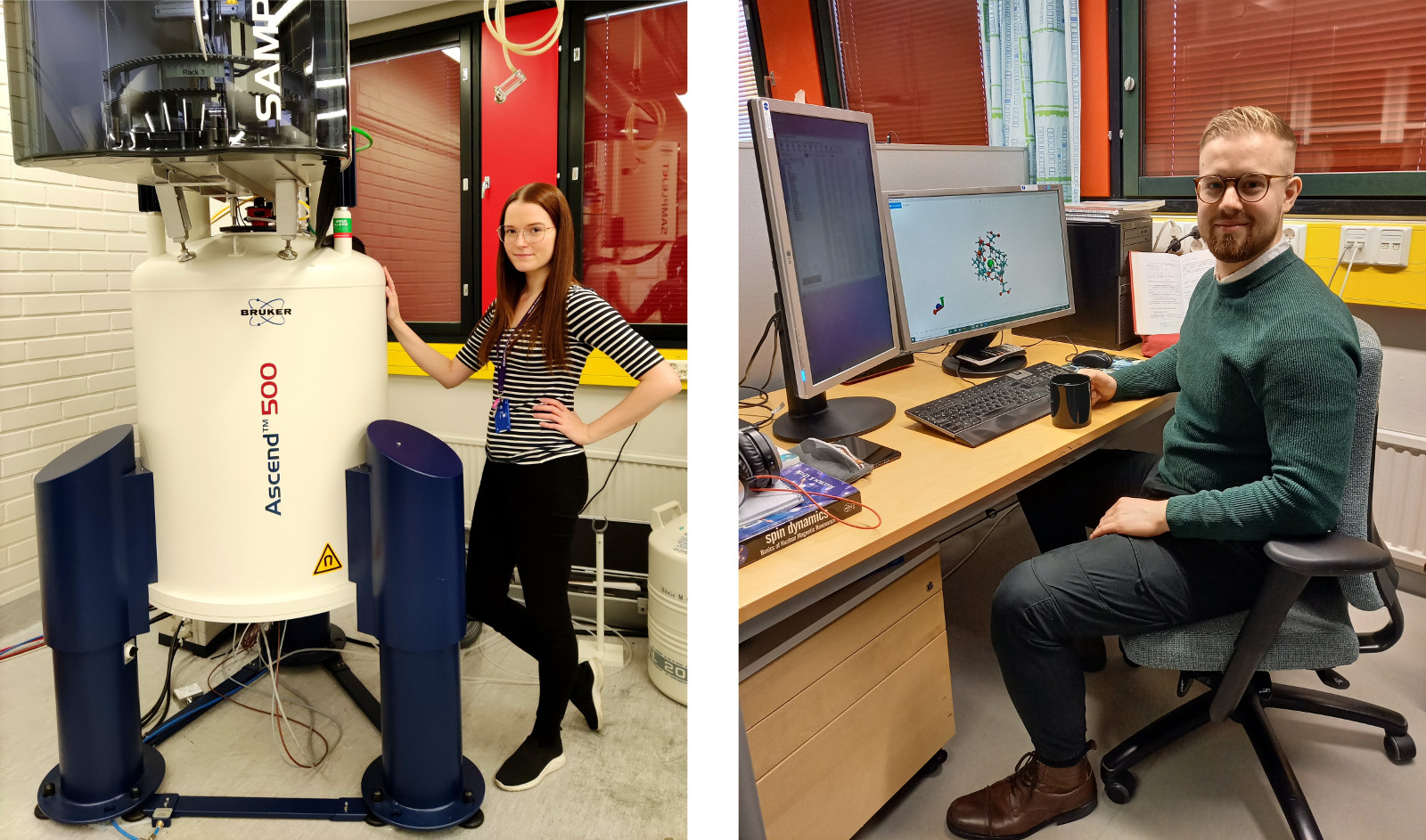
The master's theses of Katja Tolkkinen and Perttu Hilla were selected among the finalists, and got honorary mentions for their work in the competition for Master's thesis prize by Finnish Physical Society. Katja worked on experimental NMR cryoporometry of porous materials and articular cartilage and Perttu theoretically modelled dynamics of xenon atoms for applications in biosensors. Both Katja and Perttu are now continuing their postgraduate research in our group. Congratulations!
Katja's blogpost
and her thesis
Perttu's video
and his thesis
The NMR research group can be found at the Linnanmaa Campus, corridor G (red), G2 staircase, 3rd floor.
Internal University address: 3KEM
If you are interested in our research, collaboration, or want to study in our group, please contact prof. Juha Vaara or prof. Ville-Veikko Telkki.
NMR Research Unit
Faculty of Science
P.O. Box 3000
FIN-90014 University of Oulu
Finland
Tel: +358-294-48 1343 (theory)
Tel: +358-294-48 1309 (experiment)